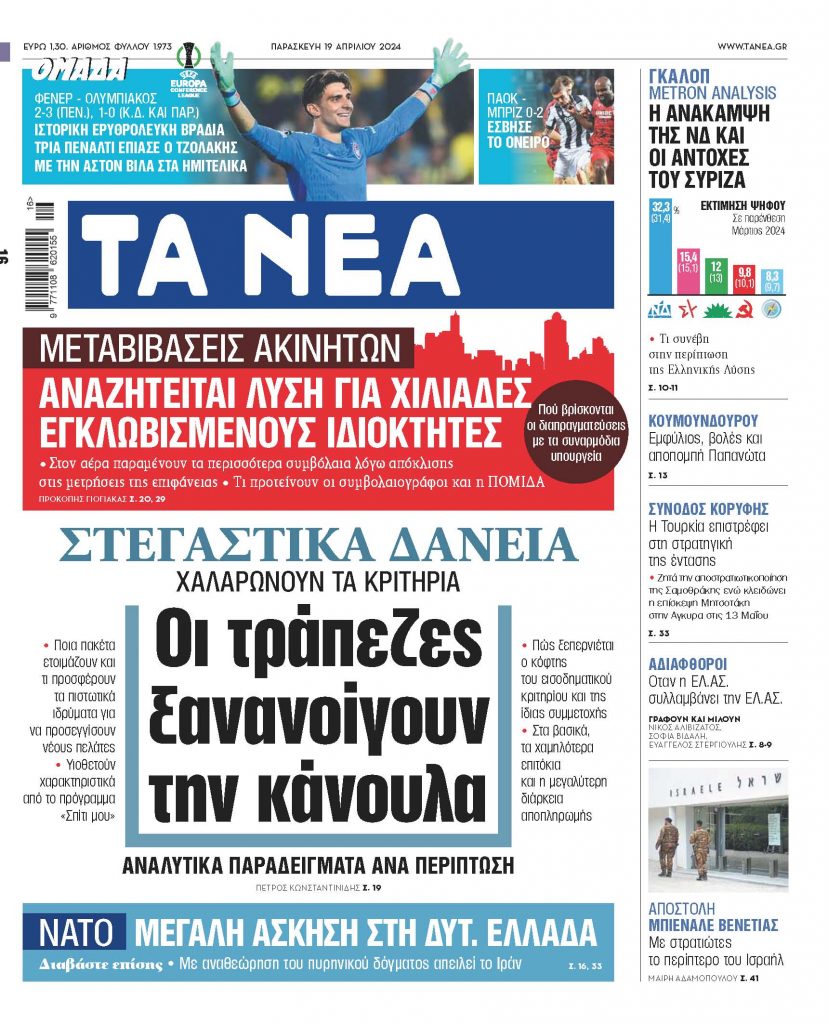The cost of the public health crisis with which Greece is confronted is plainly obvious on various levels.
Above all is the cost in human like as Covid-19 has claimed over 50 lives in our country and other countries have registered thousands.
Then there is the social cost as every crisis tests the endurance of a society.
Last but not least is the economic cost.
This will be a year of deep recession for the Greek economy.
The unemployment rate in Greece will rise.
The global economy will face strong pressures arising from countries’ skyrocketing national debt.
It would be a singular feat of self-deception if one were to believe that we can get through this crisis unscathed, yet each of us can strive to minimise the cost to the extent possible.
Every life is sacred.
Yet is one thing for a nation to mourn tens of thousands of lives and another to mourn thousands.
On the economic front as well there will be a heavy toll.
One unemployed person is 100 percent unemployed, but an army of unemployed people is a crushing burden (file photo).
The smaller the number of people who are left jobless, the easier it will be for the state to offer support and for them to be hired in a new job.
The battle to minimise the cost of the crisis must therefore be won because that is critical in achieving the aims of emerging stronger and with greater self-confidence, of developing trust in state institutions, and of nurturing a sense of social solidarity when it blows over.
To achieve all that there must be a perfectly clear understanding that battles are won when we are united against the common enemy.

